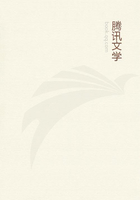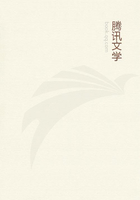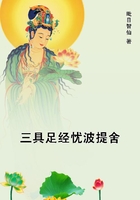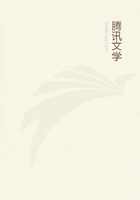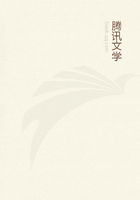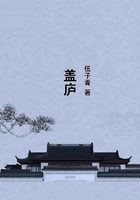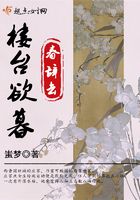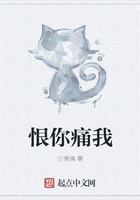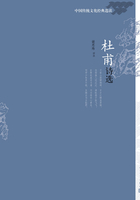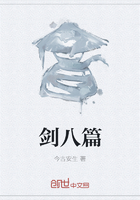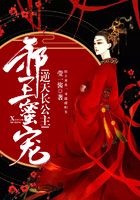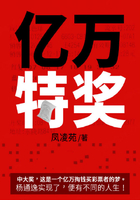Florence continued in disunion and disturbance. The dissensions continued among the party of Cosmo, in 1455, from the causes already related, which by his prudence, as we have also before remarked, he was enabled to tranquilize; but in the year 1464, his illness increased, and he died. Friends and enemies alike grieved for his loss; for his political opponents, perceiving the rapacity of the citizens, even during the life of him who alone restrained them and made their tyranny supportable, were afraid, lest after his decease, nothing but ruin would ensue. Nor had they much hope of his son Piero, who though a very good man, was of infirm health, and new in the government, and they thought he would be compelled to give way; so that, being unrestrained, their rapacity would pass all bounds. On these accounts, the regret was universal. Of all who have left memorials behind them, and who were not of the military profession, Cosmo was the most illustrious and the most renowned. He not only surpassed all his contemporaries in wealth and authority, but also in generosity and prudence; and among the qualities which contributed to make him prince in his own country, was his surpassing all others in magnificence and generosity. His liberality became more obvious after his death, when Piero, his son, wishing to know what he possessed, it appeared there was no citizen of any consequence to whom Cosmo had not lent a large sum of money; and often, when informed of some nobleman being in distress, he relieved him unasked. His magnificence is evident from the number of public edifices he erected; for in Florence are the convents and churches of St. Marco and St. Lorenzo, and the monastery of Santa Verdiana; in the mountains of Fiesole, the church and abbey of St. Girolamo; and in the Mugello, he not only restored, but rebuilt from its foundation, a monastery of the Frati Minori, or Minims. Besides these, in the church of Santa Croce, the Servi, the Agnoli, and in San Miniato, he erected splendid chapels and altars;and besides building the churches and chapels we have mentioned, he provided them with all the ornaments, furniture, and utensils suitable for the performance of divine service. To these sacred edifices are to be added his private dwellings, one in Florence, of extent and elegance adapted to so great a citizen, and four others, situated at Careggi, Fiesole, Craggiulo, and Trebbio, each, for size and grandeur, equal to royal palaces. And, as if it were not sufficient to be distinguished for magnificence of buildings in Italy alone, he erected an hospital at Jerusalem, for the reception of poor and infirm pilgrims. Although his habitations, like all his other works and actions, were quite of a regal character, and he alone was prince in Florence, still everything was so tempered with his prudence, that he never transgressed the decent moderation of civil life; in his conversation, his servants, his traveling, his mode of living, and the relationships he formed, the modest demeanor of the citizen was always evident; for he was aware that a constant exhibition of pomp brings more envy upon its possessor than greater realities borne without ostentation. Thus in selecting consorts for his sons, he did not seek the alliance of princes, but for Giovanni chose Corneglia degli Allesandri, and for Piero, Lucrezia de' Tornabuoni. He gave his granddaughters, the children of Piero, Bianca to Guglielmo de' Pazzi, and Nannina to Bernardo Ruccellai. No one of his time possessed such an intimate knowledge of government and state affairs as himself; and hence amid such a variety of fortune, in a city so given to change, and among a people of such extreme inconstancy, he retained possession of the government thirty-one years; for being endowed with the utmost prudence, he foresaw evils at a distance, and therefore had an opportunity either of averting them, or preventing their injurious results. He thus not only vanquished domestic and civil ambition, but humbled the pride of many princes with so much fidelity and address, that whatever powers were in league with himself and his country, either overcame their adversaries, or remained uninjured by his alliance; and whoever were opposed to him, lost either their time, money, or territory. Of this the Venetians afford a sufficient proof, who, while in league with him against Duke Filippo were always victorious, but apart from him were always conquered; first by Filippo and then by Francesco. When they joined Alfonso against the Florentine republic, Cosmo, by his commercial credit, so drained Naples and Venice of money, that they were glad to obtain peace upon any terms it was thought proper to grant. Whatever difficulties he had to contend with, whether within the city or without, he brought to a happy issue, at once glorious to himself and destructive to his enemies; so that civil discord strengthened his government in Florence, and war increased his power and reputation abroad. He added to the Florentine dominions, the Borgo of St. Sepolcro, Montedoglio, the Casentino and Val di Bagno. His virtue and good fortune overcame all his enemies and exalted his friends. He was born in the year 1389, on the day of the saints Cosmo and Damiano. His earlier years were full of trouble, as his exile, captivity, and personal danger fully testify; and having gone to the council of Constance, with Pope John, in order to save his life, after the ruin of the latter, he was obliged to escape in disguise. But after the age of forty, he enjoyed the greatest felicity; and not only those who assisted him in public business, but his agents who conducted his commercial speculations throughout Europe, participated in his prosperity. Hence many enormous fortunes took their origin in different families of Florence, as in that of the Tornabuoni, the Benci, the Portinari, and the Sassetti. Besides these, all who depended upon his advice and patronage became rich; and, though he was constantly expending money in building churches, and in charitable purposes, he sometimes complained to his friends that he had never been able to lay out so much in the service of God as to find the balance in his own favor, intimating that all he had done or could do, was still unequal to what the Almighty had done for him. He was of middle stature, olive complexion, and venerable aspect; not learned but exceedingly eloquent, endowed with great natural capacity, generous to his friends, kind to the poor, comprehensive in discourse, cautious in advising, and in his speeches and replies, grave and witty. When Rinaldo degli Albizzi, at the beginning of his exile, sent to him to say, "the hen had laid," he replied, "she did ill to lay so far from the nest." Some other of the rebels gave him to understand they were "not dreaming." He said, "he believed it, for he had robbed them of their sleep." When Pope Pius was endeavoring to induce the different governments to join in an expedition against the Turks, he said, "he was an old man, and had undertaken the enterprise of a young one." To the Venetians ambassadors, who came to Florence with those of King Alfonso to complain of the republic, he uncovered his head, and asked them what color it was; they said, "white": he replied, "it is so; and it will not be long before your senators have heads as white as mine." A few hours before his death, his wife asked him why he kept his eyes shut, and he said, "to get them in the way of it." Some citizens saying to him, after his return from exile, that he injured the city, and that it was offensive to God to drive so many religious persons out of it; he replied that, "it was better to injure the city, than to ruin it; that two yards of rose-colored cloth would make a gentleman, and that it required something more to direct a government than to play with a string of beads." These words gave occasion to his enemies to slander him, as a man who loved himself more than his country, and was more attached to this world than to the next. Many others of his sayings might be adduced, but we shall omit them as unnecessary. Cosmo was a friend and patron of learned men. He brought Argiripolo, a Greek by birth, and one of the most erudite of his time, to Florence, to instruct the youth in Hellenic literature. He entertained Marsilio Ficino, the reviver of the Platonic philosophy, in his own house; and being much attached to him, have him a residence near his palace at Careggi, that he might pursue the study of letters with greater convenience, and himself have an opportunity of enjoying his company. His prudence, his great wealth, the uses to which he applied it, and his splendid style of living, caused him to be beloved and respected in Florence, and obtained for him the highest consideration, not only among the princes and governments of Italy, but throughout all Europe. He thus laid a foundation for his descendants, which enabled them to equal him in virtue, and greatly surpass him in fortune; while the authority they possessed in Florence and throughout Christendom was not obtained without being merited.
同类推荐
热门推荐
楼台欲暮春辞去
西晋国琼城的庄家,乃富可敌国的商贾世家。庄家庶女庄玲珑自幼便是默默无闻,任人宰割的草包五小姐。一次意外落水后,她竟变得人如其名般八面玲珑。先是有庄家老爷逐一将家产交由她打理,后竟连西晋国的王公贵族都抢着跟她做生意。世人都说,她这是因祸得福,开启了一条发家致富、光耀门楣的康庄之路。……祁王爷赵洵:本王的王妃真乃西晋第一小富婆。小侯爷裴子期:玲珑骰子安红豆,入骨相思知不知?季家少爷季卷柏:玲珑是我的青梅竹马!四皇子赵洵:这个小皇婶真是有钱的可怕。……庄玲珑:你们还让不让人好好宅斗了?!——————————————————————————关键词:宅斗经商,剧情成长,1V1甜宠,政斗谋权今天又要顺毛了
[包工头VS白月光]传言,言三爷要风得风要雨得雨,却只有他知道他有一样东西得不到,那就是——温沐暖。“我不许你喜欢我。”看着小姑娘泪汪汪的眼睛,言夜寒只好妥协“那就不喜欢你。”结果言夜寒这句话承诺过后,温沐暖硬是没谈过恋爱,所有人都对她退避三舍,唯恐避之不及。“我不许你骚扰我。”“我不骚扰你。”结果温沐暖天天有种被人跟踪的感觉是个什么梗?“你立马消失在我的视线里。”“遵命。”结果前一秒某人刚承诺完,下一秒就见言夜寒满身酒气的拦住了温沐暖的去路。“老子不是不敢动你,是不舍得,别太过分,我害怕我突然发疯忍不住……现在容你放纵完,是不是该缴费了?”温沐暖懵逼,很快她就懂得了缴费的意思。果然,资本主义都是没人性的。“你说好的放过我呢?”某人神色一滞“抱歉,忘了,我还说过这话?”温沐暖:“……”[推沐夜的其他作品:《韩先生又傲娇了》]邪王蜜宠:逆天长公主
陌杨哥哥你怎么把院墙又给修高了,人家都快翻不过去了!她苏依然,尚书府千金大小姐,二十年里生活风平浪静爱恋九王爷楚陌杨,自从她为他挡了一箭后从此二人的真实身世逐渐浮出水面,她摇身变成女帝的长公主,他报灭门之仇却得知上一世的身份,上一世的爱恨情仇渐渐让原本活泼乐观可爱的依然走上黑化之路,究竟她会不会原谅上一世他的过错?这一世他和她会是什么结果?下一生,他们还会不会相遇?--情节虚构,请勿模仿追妻无门:女boss不好惹
青涩蜕变,如今她是能独当一面的女boss,爱了冷泽聿七年,也同样花了七年时间去忘记他。以为是陌路,他突然向他表白,扬言要娶她,她只当他是脑子抽风,他的殷勤她也全都无视。他帮她查她父母的死因,赶走身边情敌,解释当初拒绝她的告别,和故意对她冷漠都是无奈之举。突然爆出她父母的死居然和冷家有丝毫联系,还莫名跳出个公爵未婚夫,扬言要与她履行婚约。峰回路转,破镜还能重圆吗? PS:我又开新文了,每逢假期必书荒,新文《有你的世界遇到爱》,喜欢我的文的朋友可以来看看,这是重生类现言,对这个题材感兴趣的一定要收藏起来。

